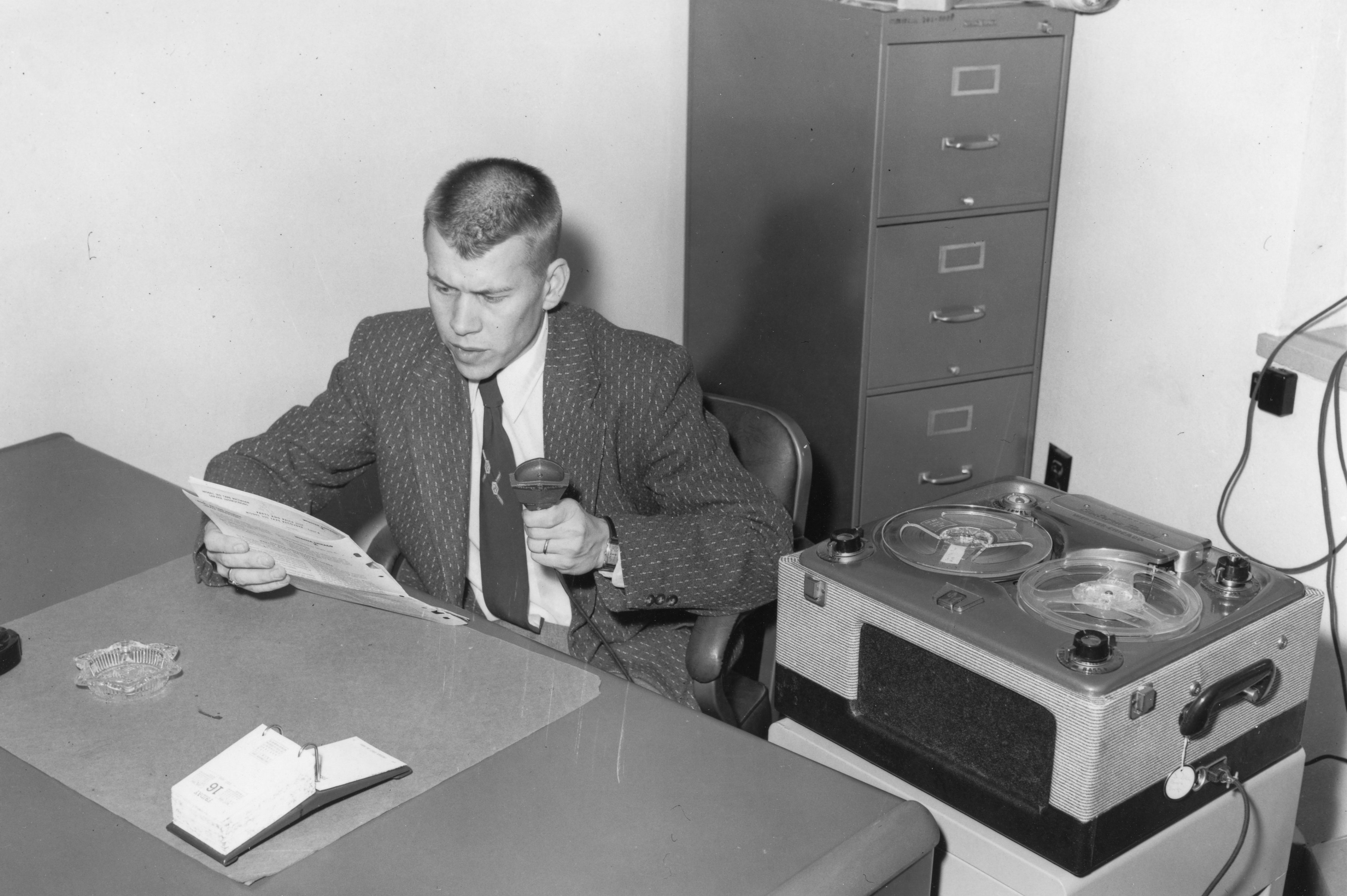Newly hired in 1952 (at the request of Dean Martin) Raymond Carlson came on the scene starting as a one-man psychology “department.” He receieved the titels, and duties, of both coordinator of student services and dean of students, men and women. At the time, student services, such as they were, were fragmented and scattered; Carlson was trying to integrate these services under his direction. Among the first real changes sought by Carlson were the role, nature, need and even the definition of counseling. As stated and defined in the school catalog under counseling, “each student is assigned to a faculty member who acts as his counselor, conferring with him on scholastic achievement, work load, personality development and other problems concerned with his happiness and success.” To Carlson this seemed inappropriate for teaching faculty; they simply were not counselors int he true sense but primarily academic advisors. When Carlson pushed for added personal counseling, the faculty then defined it as some form of “crying towel” or “silly hand-holding,” obviously not needed. Carlson eventually won this debate and a counseling center was established by 1960. It was expanded thereafter.
By 1956 Bemidji State got semi-due-process in the form of Student Review Boards, soon called J-boards, for judicial boards. The spark that pushed Carlson to act in the name of common sense occurred when a woman student was about to be expelled because she had been exactly 22 seconds late in getting inside the dormitory door after curfew. The forthcoming J-board hearing saved this particular student from expulsion and Dr. Carlson’s impact on student life only continued to expand.

